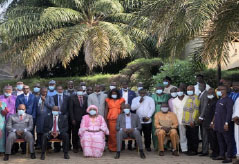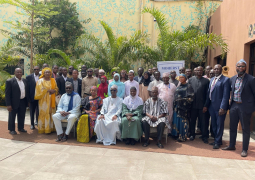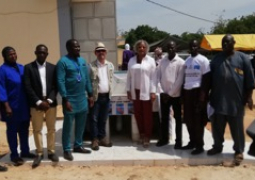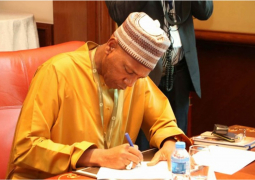
The high level meeting is expected attracted representatives of agricultural statistics and early warning systems from CILSS, UEMOA and ECOWAS member countries and representatives of the Sub Regional institutions.
The three-day convergence currently underway at the Kairaba Beach Hotel, is funded by CILSS, FAO the European Union, USAID, the World Bank, ECOWAS, the African Development Bank, and the Islamic Development Bank.
The forum seeks to serve as a mechanism for carrying out close monitoring of the food and nutrition situation in order to ensure the early detection of cyclical difficulties thanks to the synthetic and comparison of various information.
It also serves as a framework for consultation and coordination based on the principles of dialogue that relies on all information systems at the national and regional level.
At the opening ceremony, Amie Fabureh, Minister of Agriculture, said The Gambia is honored to host this important CILSS meeting, which she said, contributes to providing relevant information, with a view to providing appropriate solutions for a sustainable food and nutrition security in the Sahel and West Africa.
Minister Fabureh assured participants that government of The Gambia and those of the other CILSS, ECOWAS and UEMOA countries are paying close attention to the outcomes of their deliberations for better food and nutrition security for the people of Sahel and West Africa.
For his part, Dr. Souleymane Overdraogo, Director General Agrayment Regional Centre expressed appreciation to the diversity of participants, which he said, comes from different parts of West Africa gathered in Banjul, to discuss and validate the ex-post 2020-2021 food and cereal balance sheet and 2021- 2022 forecasts.
He thus urged participants to give out good deliberations at the end of the meeting to work for the betterment of agricultural sector.
The meeting, which is held every November is part of the framework and its main objective is to validate the forecast agricultural production and cereal and food balance sheets in the Sahel and West African countries.
Therefore, participants at the meeting are expected to analyse information on short-term food security in the region.





